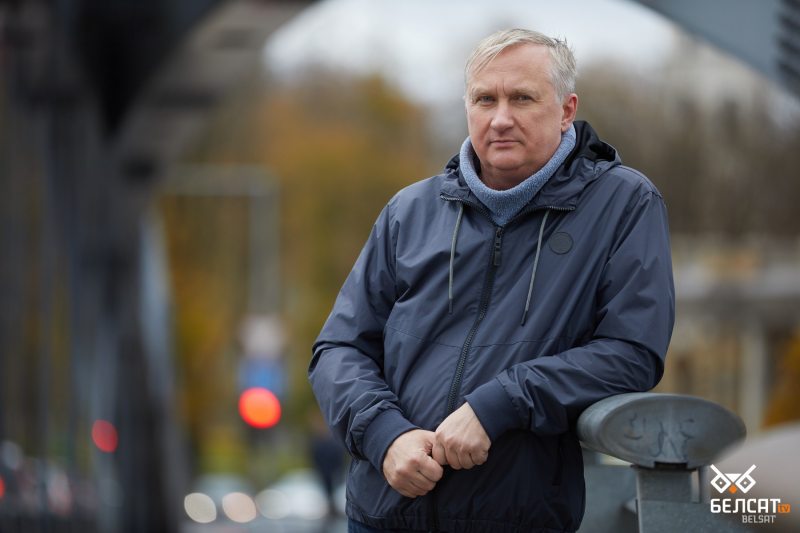Viasna’s lawyer Pavel Sapelka comments on the trial of his colleagues: "This is a crackdown on human rights defenders in the guise of justice"
Since 5 January, the Leninski District Court of Minsk has been housing proceedings in the Viasna Case brought against Ales Bialiatski, head of the Viasna Human Rights Centre, Valiantsin Stefanovich the deputy head, and Uladzimir Labkovich, coordinator of the Human Rights Defenders for Free Elections campaign, as well as Zmitser Salauyou, who had to flee from Belarus, with court proceedings against him being held in the absence of the defendant. The four human rights defenders are facing charges under Part 4 of Article 228 (‘Smuggling by an organized group’) and Part 2 of Article 342 (‘Financing of group actions that grossly violate public order’) of the Criminal Code, and dispute all the claims made against them under both Criminal Code articles. The trial is presided by the notorious judge Maryna Zapasnik, while Alyaksandr Karol acts as the public prosecutor. We have discussed the proceedings with our colleague, Viasna’s lawyer Pavel Sapelka.
— Today is another day of hearing in the Viasna Case is being conducted. What are your impressions about the trial?
— This is a crackdown on human rights defenders in the guise of justice; however, a mere semblance of judicial procedure does not make it justice. It makes no difference that this crackdown occurs in a courtroom and is carried out by a person in a judicial robe. The original investigation took 14 months and was based on totally different charges, and it was that earlier investigation which, though ultimately failing, provided grounds for the arbitrary detention of the human rights defenders for over a year and made it possible to interrogate witnesses. Now, they are trying to use those witness statements to support the newly-minted absurdity which the prosecution is scrambling together before the court. This is a muddled mess of facts, speculations and assumptions which may only be accepted by a court if the court itself has no regard for the nature of justice or at least for the formalities required to be observed during the administration of justice.
— The judge Maryna Zapasnik has not satisfied a single petition filed by the human rights defenders. What do you think about it?
— In assessing the trial in terms of compliance with the due process of law, reference should be made to the international commitments undertaken by Belarus. It may seem a bit boring but still. Pursuant to the International Covenant on Civil and Political Rights (the Covenant), signed and ratified by Belarus, which means that it is binding upon the country and its authorities, including judicial authorities, "everyone shall be entitled to a fair and public hearing by a competent, independent and impartial tribunal established by law"; the right to equality before the court or tribunal, in general, guarantees the right of equal access and adversarial trial and ensures that treatment of the parties during such hearings is free of any discrimination.
Treatment of the parties is about the prosecution represented by an officer from the prosecutor’s office and the defence party, including the defendants and their counsels. Now, look at the first day of the trial and see the message clear: the prosecution is taking part in the proceedings held in its native language, has a desk with writing utensils and no handcuffs on. As for the defence party, the defendants are involved in the proceedings held in a foreign language, are kept in a courtroom cage with handcuffs on, have no writing utensils (a ball pen refill is unlikely to be considered as such) and have no full knowledge of the case materials. Why were the petitions which are reasonable and fairly important for the defendants not satisfied? It is because the court itself appears to be highly motivated to create adverse conditions for the defence party. Alternatively, it is because the court has no understanding of the importance of due-process rights (so, the court prevents the defendants from getting a fuller knowledge of the case materials) and the ultimate nature of the ban on cruel and degrading treatment (people kept in a cage, which, in itself, is unacceptable, are suffering from having handcuffs on). In addition, the judge seems to be fundamentally incompetent and unaware of laws and regulations, and leaves the maintenance of order in the courtroom to the discretion of the escort team.
However, I tend to think that the judge is acting like that because, being a manageable cog in the wheel of the repressive machine dependent on executive authorities, she follows its orders to dispose without remorse of any protest against the totalitarian regime and any form of dissent. Meanwhile, a requirement for the court to be competent, independent and impartial is an absolute right which allows no exceptions. The UN Human Rights Committee (HRC) states that "a situation where the functions and competences of judicial bodies and executive authorities are not explicitly divided or the latter are able to control or direct the actions of the former is absolutely incompatible with the idea of an independent court".
— What would be your comments in relation to the charges brought against the Viasna members and the process of proving their guilt in court?
I have already said a bit about the process of proving at the beginning, and this is what the Convention says about the mindless disclosure of the witness statements in the absence of witnesses: "Everyone charged with a criminal offence shall have the right to examine, or have examined, the witnesses against him". The HRC notes that this guarantee, as a way to implement the adversarial principle, is extremely relevant because it ensures efficient defence to the defendants and their counsels and thus, the same legal powers for the defendants to demand that witnesses appear before the court and to have an opportunity to examine or cross-examine any witness presented by the prosecution. Defendants have no other option, except for examining witnesses in the court, because they can only study the content of the witness evidence after the preliminary investigation is over.
— What do you expect from this trial?
— Let me repeat, I don’t expect any fair court decision; this show will end up with a more or less tough sentence. However, everyone should remember that political persecution in its today’s scope and form is a crime against humanity even according to the Belarusian laws which is not subject to the statute of limitations.
Human rights defenders who are political prisoners need our solidarity!
|
Support them with your letters, parcels and money transfers: SIZO-1, 220030, Minsk, vulica Valadarskaha, 2 |
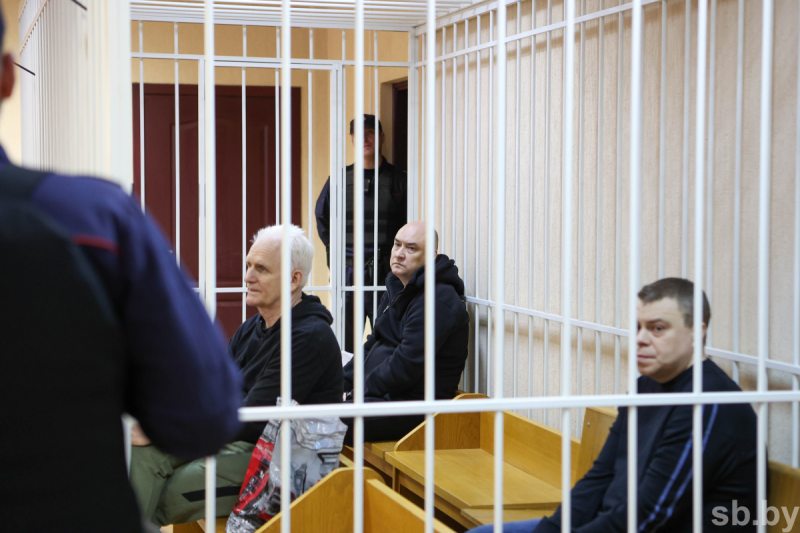
Trial against Viasna leadership: Day 1
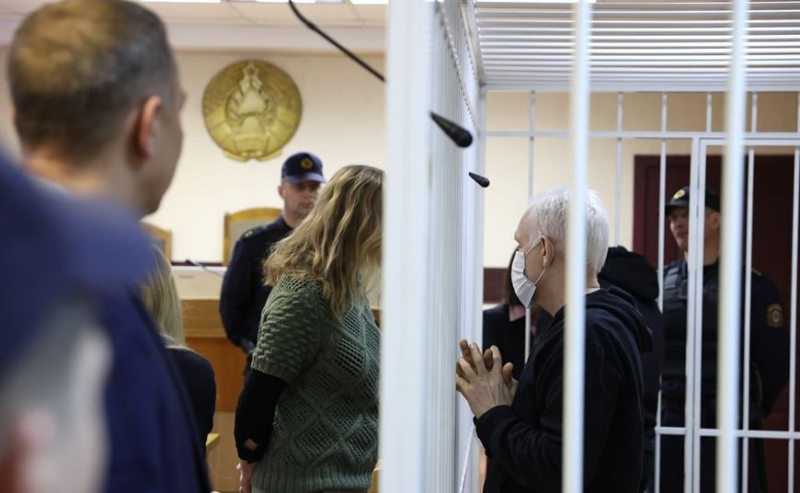
Trial against Viasna leadership: Day 2
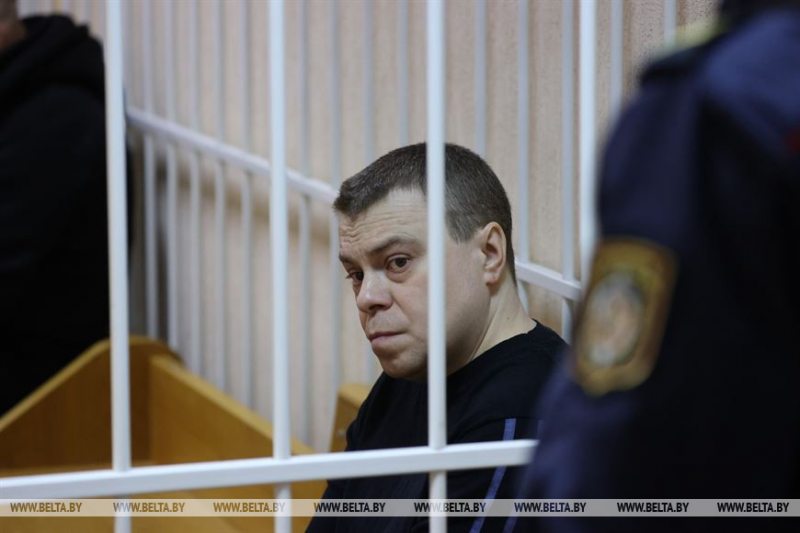
Trial against Viasna leadership: Day 3
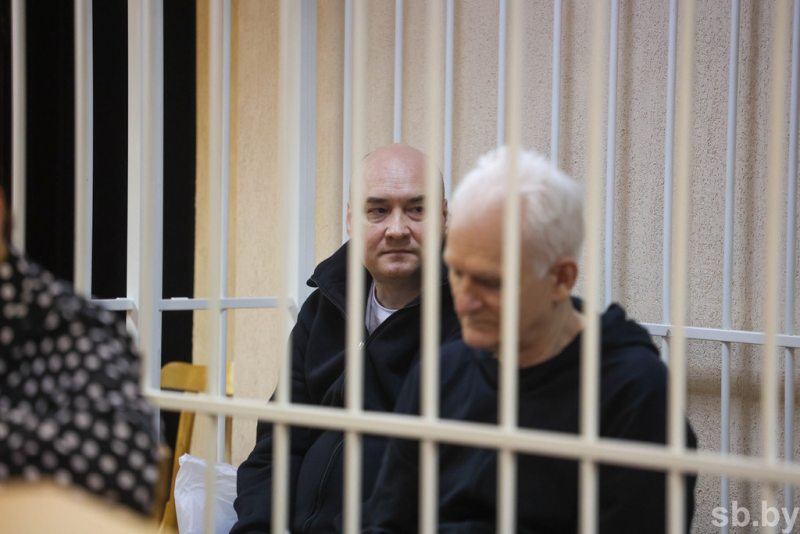
Trial against Viasna leadership: Day 4 and 5



